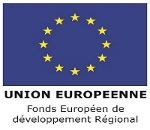HAVAE – Disability, Activity, Aging, Autonomy and the Environment
EA 6310
Presentation
Stéphane MANDIGOUT – Director Tel. : + 33 (0)5 87 08 08 85
Adress : Faculté des Sciences et techniques 123 avenue Albert Thomas – 87060 LIMOGES CEDEX
Administrative Supervision : University of Limoges
Parent Institute : GEIST
Doctoral School : ED 615 – Sciences Biologiques et Santé (SBS)
Associated Research Masters : – M2 ingénierie de la santé (parcours ingénierie de la neuromotricité) avec la création et la responsabilité d’un séminaire optionnel sur le système nerveux autonome depuis 2013 (système nerveux autonome, motricité handicap viscéral SNAMHV) (Université Jean Monnet, Saint Etienne) – Neuroépidémiologie et parasitologie tropicale (Limoges) – Master Ingénierie de la rééducation, du Handicap et de la Performance Motrice (Poitiers) – Master international Auton’Hom-e (Limoges et Sherbrooke) – Master professionnel APSS – Master design innovation société (Nimes) – Master Essais cliniques (Poitiers)
Key figures (30/06/2017)
Professors & researchers : 10
Doctoral Students : 3
Accreditated to direct research (HDR) : 4
13 people present
Scientific Publication (2012-2016)
Peer reviewed journal : 31
Books : 1
Book chapters : 3
Conference presentations : 55
Thesis defended : 3
Research
Our scientific strategy will be organized according to two complementary objectives which will be enriched according to a recursive model :
- Investigate disabilities processes and their interactions (interactions between impairments, activity, participation, and personal and environmental factors), which will provide the most relevant coping strategies that impact on health outcomes.
- Evaluate and validate home care strategies (prevention, restoration and compensation). By identifying which processes they act on, this will enrich the understanding of the mechanisms of disability production
Research Themes: The aim of the team is centered on the preservation of autonomy at home in real life. Based on the results obtained, we have redefined the scientific approach by bringing us closer to the concepts of the International Classification of Functioning (ICF – World Health Organization 2003). In other hand, we study disability processes (according to the ICF concepts) in order to better define the management strategies (prevention, restoration and compensation). Considering the constitution of the team, the approach is focused on the health problem and its consequences on the impairments, the activity and the participation
Keywords : Disability – Clinical Research – Physical and Sports Activities – Chronic Polypathology – Aging – Autonomy – Rehabilitation – New technology
Equipment / Technical resources
2 mobile, multidisciplinary teams that can assess patients at home
Scientific valorization
Fields of application : Health, ICT
Industrial applications : Modelling the impact of organizational factors and/or new technology on the loss of autonomy, medico-economical validation and uses ; Validating diagnosis support using information and communication technology and sensors ; Scientific validation of medical systems
Partnerships
- National University Partnerships : Saint Etienne ; Poitiers ; Avignon ; Clermont, Bordeaux ; UTC Compiègnes ; Toulouse (Gérontopole de Toulouse et Santé ; Lyon 3
- International University Partnerships : Institut du viellissement Havard university Boston, USA Pr Lipsitz ; Centre interdisciplinaire de recherche en réadaptation et intégration sociale (CIRRIS), Université Laval, Québec ; Université de Bacau, Roumanie
- Industrial Partnerships : Link Care Service ; SRET ; Orange ; Voluntis ; inoveo ; SIRMAD ; Société Legrand ; Qualcomm


